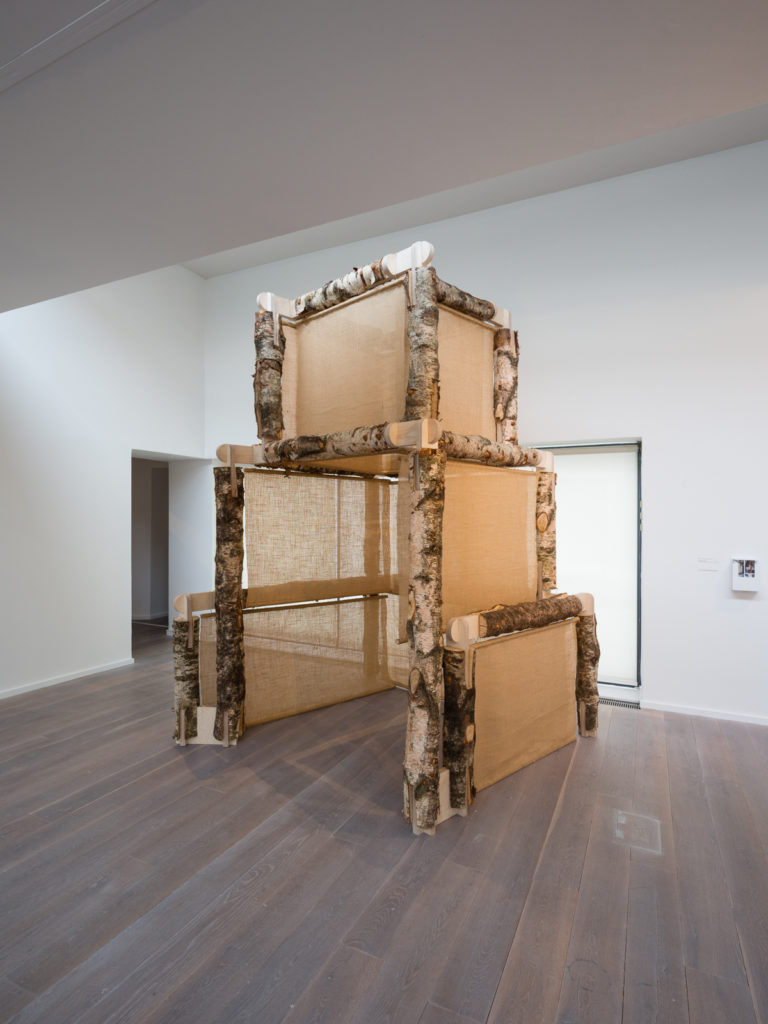30.08.22

30.08.22


Originally on display at the Solstice Arts Centre at the start of the year, this AAI Award-winning exhibition tours to the Tallinn Architecture Biennale this autumn.
Opening: 8 September, 18:30 at Põhjala factory (Marati 5).
Curators: St. John Walsh (Alder Architects, Dublin); Aet Ader, Helmi Marie Langsepp, and Mari Möldre (b210 Architects, Tallinn)
Exhibiting architects: Creatomus Solutions, Hannigan Cooke Architects, Joseph Mackey Architects, Kaja Pae and Paco Ulman, OGU Architects, Peeter Pere Architects, Robert Bourke Architects, Ruumiringlus, Studio Kuidas, and Wrkshop
As a natural building material, wood contains a unique richness which is impacted by many factors including climate and topography. Whether the building site is next to a forest or not, timber used in construction has been subjected to an industrial decision making process that dictates its final physical properties. In this act of translation, where wood is often treated similarly to other inanimate materials, a tree’s uniqueness is sacrificed for transportability, structural consistency and usability.
Focusing on the characteristics of wood, the exhibition explores the act of transformation across the life cycle of the material from extraction to transportation, standardisation to encapsulation and eventual disassembly for potential reuse. In seeking out the unique traits of timber, it asks how industry and construction can learn from and be shaped by these inherent qualities of the material. What are the demands of the building industry for wood materials and what are the limitations and opportunities of this? Is it necessary for a designer to consider the life cycle of the wood? What opportunity exists to interpret and reuse standardised material extracted from existing sources following deconstruction?
This exhibition is the result of the Wood Works competition and creative exchange programme initiated by the Estonian Association of Architects in partnership with the Estonian Centre for Architecture and the Irish Architecture Foundation. The exhibition proposal was selected through the Wood Works Curatorial Team Competition in 2020, judged by the EAA, ECA and IAF. The project is supported by the European Commission’s European Regional Development Fund through Enterprise Estonia, with additional support from the Arts Council of Ireland, the Cultural Endowment of Estonia, Enterprise Ireland, and support to tour the exhibition to TAB from Culture Ireland.
Alder Architects is a multidisciplinary practice based in Dublin and Cork. They enjoy applying their design skills to projects at all scales, focusing on inventive use of materials and light. They place a strong emphasis on collaboration and participation with clients, communities and artists. Commissions to date have included new residential and commercial buildings, extensions to existing structures, workplace design and public installations. St John Walsh established Alder Architects in 2016 following over 10 years experience working with award winning architecture practices in Ireland and the UK.
b210 is an architecture office in Tallinn with a think tank approach to everyday spatial challenges. They believe that positive change in the built environment is driven by a smart design process where architectural ideas are as important as the methods of developing them. They like to design ways of thinking as much as physical spaces. Aet Ader is an architect and co-founder of b210 whose experience includes co-editing architecture magazine Ehituskunst, serving as vice-president of the Association of Estonian Architects, and co-curating the Tallinn Architecture Biennale 2013: Recycling Socialism and the exhibition BEL:EST – A Laboratory for Europe in Brussels, which was exhibited in Bozar, Brussels and TAB, Tallinn. Before joining b210, Helmi Marie Langsepp worked as an architect in MAP Architects studio (Denmark) and Mari Möldre worked as an architect in MORE Architecture (China).
The Tallinn Architecture Biennale (TAB) is the biggest and most important architectural festival in the Baltics, addressing relevant issues in architecture and delving into the present and the future of the field. TAB encourages synergy between Estonian and foreign architects, and between architects and the public, by creating contacts and exchanging ideas.
The 6th Tallinn Architecture Biennale (TAB) is titled Edible; Or, The Architecture of Metabolism and is curated by Lydia Kallipoliti and Areti Markopoulou in collaboration with Chief Local Advisor Ivan Sergejev.
In the biennale, “food” is approached both literally and metaphorically. On the one hand, Edible explores architectural strategies of local production and self-sufficiency, and on the other, operations that use by-products of urban life, replacing the traditional linear systems of “make, use and dispose” with circular systems that aim to limit material and resource loss.
The 2022 Biennale will feature the Curators’ Exhibition, Vision Competition and a Symposium curated by the Head Curators. TAB will also include numerous side events: Installation Competition, International Schools’ Exhibition, Satellite Programme and Online Programme.
TAB 2022 will take place September – November 2022, with the opening week on 7–11 September. The exhibition Edible at the Estonian Museum of Architecture is open until November 20.
The Irish Architecture Foundation is proud to present both There is a forest in my backyard but my house is built from trees grown far away and the photo exhibition From the Ground Up: Timber innovation in Irish architecture (curated by the IAF) in the TAB Satellite Programme.
The full TAB programme can be found here.
TAB ticket information is available here.
TAB and the Lisbon Architecture Triennale are offering reductions for joint booking. More information about this offer can be found here.
Tallink City Hotel offers 20% off for TAB visitors. To avail of this discount, use the code tab2022 with your booking.
Photo: “Raw Potential” by Wrkshop Architects © Aisling McCoy
30.08.22
04.08.22